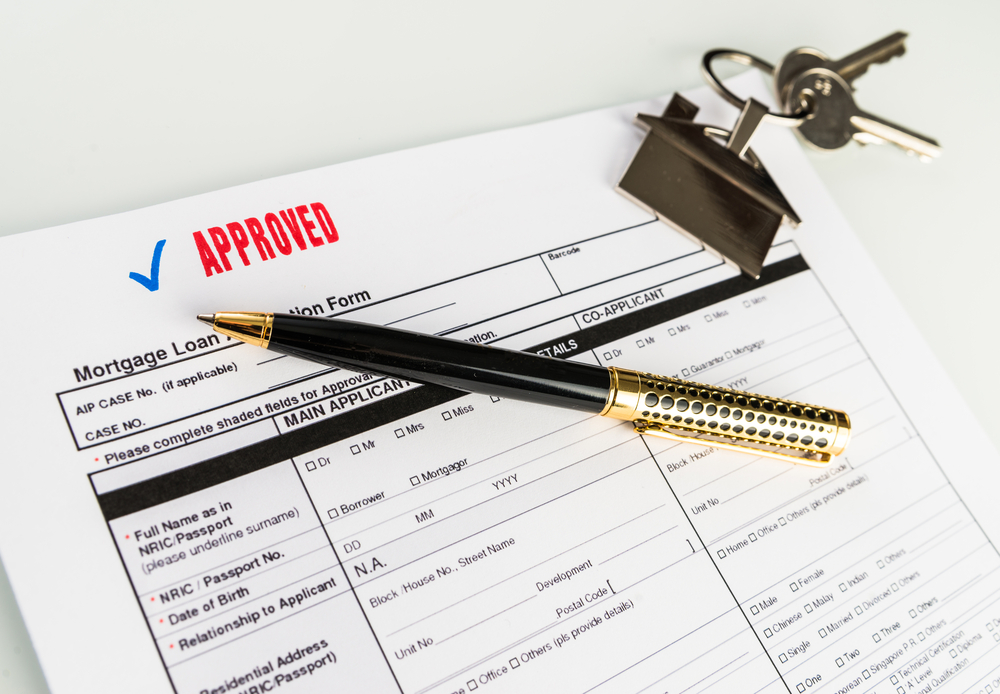Many of us hold onto the dream of owning a home as we navigate our way through adulthood. We often spend hours envisioning ourselves in designed homes featured in magazines, imagining a future where we can create a space that truly represents who we are. As we build our careers and save money, the time feels right to start making that dream a reality.
But the world of home ownership reveals there is much to grasp. Terms like “mortgage pre-approval,” “credit score impact,” and ‘hard inquiries” can feel daunting and overwhelming. To confidently navigate this terrain, dedicating time to education is crucial.
People who want to buy a house can start to understand the puzzle of mortgage pre-approval by getting advice from friends who have recently bought homes and by reading as many articles as possible. It is clear that getting pre-approval from a lender is a key part of making a budget and making ourselves more appealing to sellers as buyers.
We recognize that part of this process entails giving the lender access to thoroughly review our past and present circumstances. For a lot of us, the effect on our credit scores is a big worry. At first, it can be very unsettling to consider that our hard-earned score could be in jeopardy.
The lender gains a comprehensive understanding of our creditworthiness through the initiation of a “hard inquiry” or “hard pull” on our credit reports, as further investigation reveals. It is likely that this course of action will result in a reduction in our overall scores.
While the initial concern about potential impacts on our credit may be unsettling, conducting further research allows us to gain a clearer understanding of the consequences. According to most experts, a single hard inquiry generally reduces a credit score by five points, although the actual outcome may differ slightly depending on an individual’s credit profile. Individuals who effectively manage their credit scores can rapidly recover from this minor setback.
Prospective buyers can feel more prepared to move forward with the approval process after learning this new information. We carefully gather all of the necessary paperwork, including payslips, bank statements, and tax filings. Before we begin our house hunt, we should contact lenders to get the ball rolling. In a real estate market, understanding our purchasing power and being able to make offers quickly can have a significant impact.
The journey of getting pre-approved, though understandably anxiety-inducing, often turns out to be pleasantly swift. Many buyers choose to work with a credit union and find the document submission procedure easy to use and efficient. Loan officers are resources, patiently guiding us through each stage of the process with expertise and compassion. In a few days, we could hold our approval letters, reigniting a deep sense of anticipation and potential for the upcoming home search.
After reaching this milestone, there may still be lingering uncertainties. What if our financial circumstances change after securing pre-approval? Is there still a chance of mortgage denial down the road despite having pre-approval in hand? We will learn more about these concerns by discussing them with loan officers.
Getting pre-approved for a loan is definitely a sign from the lender, but it’s not a guarantee. Significant financial changes, like losing a job or taking on debt, could potentially impact the approval decision. Experts recommend staying financially stable and keeping in touch with the lender throughout the home search process.
With this knowledge in hand, pre-approved buyers can move forward both cautiously and optimistically. In the weeks ahead, we visit one home after another with our trusted real estate agents, exploring possibilities and carefully assessing each against our criteria of must-haves and nice-to-haves. Maintaining an optimistic and practical outlook, prospective homeowners know they will eventually find their dream home if they are patient and persistent, even if other buyers or cash offers grab certain properties.
Then, magically, it happens. The moment we step into a house that perfectly matches our aspirations, we can easily picture ourselves living there happily. The natural light, the special touches, and the inviting built-in bookshelves. Everything just feels like home. With the help of our pre-approval letters, we collaborate closely with our agent to quickly create offers. After some negotiations, our offers get the nod. The dream of owning a home is finally coming true.
The whirlwind of inspections, appraisals, and paperwork that follows serves as a reminder of the groundwork laid during the approval phase. When it’s time to seal the mortgage deal, things often proceed smoothly without any hiccups. In what seems like no time, we hold the keys to our own homes.
After settling into our homes and enjoying the living rooms post-closing, we experience a rollercoaster of emotions. Joy, gratitude, and perhaps a hint of anxiety about managing the mortgage burden. Above all else, there’s a sense of pride in the air. We take pride in the journey we’ve embarked on and in making decisions that have led us to this milestone.
Challenges may lie ahead as we navigate homeownership, but armed with problem-solving skills and adaptability honed along the way, we feel more than ready for whatever comes our way. With expressions, we excitedly start organizing and reorganizing our sunlit living spaces, looking forward to putting our passion and dedication into turning these houses into warm, welcoming homes.
Common Questions Asked and Answered
What impact does getting pre-approved have on your credit score?
Generally, obtaining a mortgage pre-approval leads to an inquiry into your credit report, resulting in a decrease in your credit score by a few points. On average, one hard inquiry might lower your score by five points; however, the actual effect can vary depending on your credit history.
When is the ideal time to seek pre-approval for a mortgage?
It is advisable to secure pre-approval before embarking on a home search. Holding an approval letter provides you with a clear understanding of your buying capacity and can enhance your attractiveness as a buyer to sellers, particularly in competitive real estate markets.
Is it possible to be denied a mortgage after receiving pre-approval?
While receiving pre-approval signals confidence from a lender, it does not serve as an assurance. Significant changes in your situation from the time of pre-approval to closing, such as job loss or taking on new debt, could potentially lead to the denial of your final loan.
How long does a mortgage pre-approval typically last?
The duration of a mortgage pre-approval may vary depending on the lender. Most pre-approvals are valid for 60 to 90 days. This time frame allows buyers time to search for a property and complete the purchase process.
Is it wise to obtain pre-approval from lenders?
It can be beneficial to shop and secure pre-approvals from lenders. This approach enables you to compare loan terms, rates, and conditions, helping you choose the most favorable option based on your individual financial circumstances and homeownership objectives.
Get Started on Your Mortgage Pre-Approval
The journey towards owning a home often involves challenges and moments of uncertainty. By setting goals, conducting research and seeking guidance from knowledgeable individuals, prospective homeowners can navigate this exciting process with confidence and clarity.
When we proactively take the initiative to comprehend and get ready for moments such as securing mortgage pre-approval, we set ourselves up to courageously chase after our aspirations of owning a home, skillfully managing our well-being while embracing the hope of having a place we can truly call ours. By taking these actions, we not only pave the way for a home purchase but also create the groundwork for a future filled with empowerment and fulfillment waiting just beyond our doorstep.


